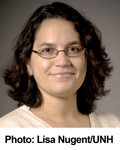2006
Julia Rodriguez
- Assistant Professor
- University of New Hampshire

Abstract
This study explores the intersection of science and law in defining citizenship and fitness for political participation in four Latin American nations in the period 1880 to 1940, a foundational period of postcolonial nation- and statebuilding. Scientific concepts in vogue at the time about capacity and inclusion revolving on sexual, racial, economic, and social criteria shaped political debates and legislation that ultimately determined access to political power. The project has a broad and comparative regional scope, focusing on Mexico, Argentina, Brazil, and Cuba, with two dimensions: to show a variety within Latin American science and law; and to compare with developments in the Americas and the Atlantic world at large.

